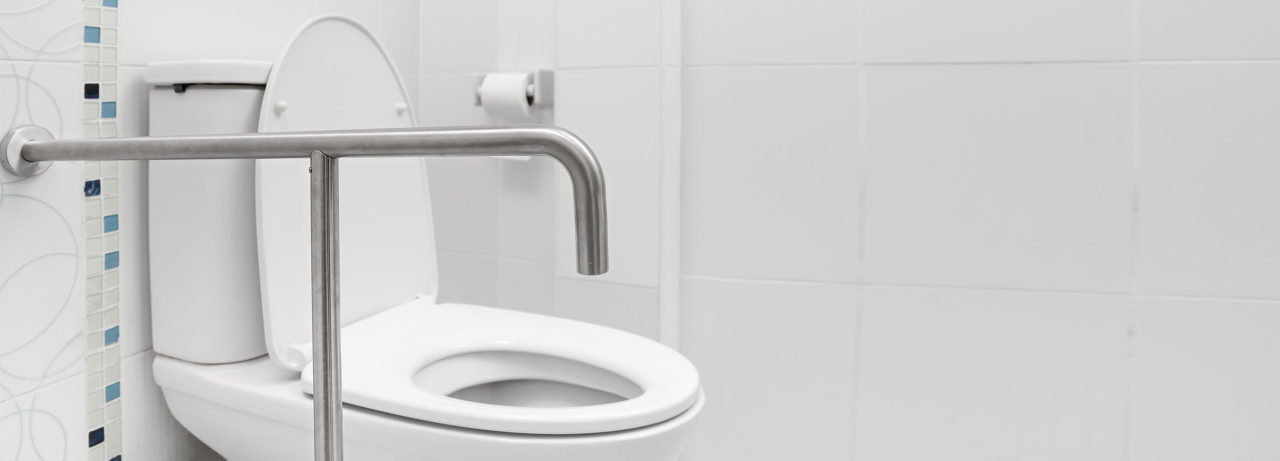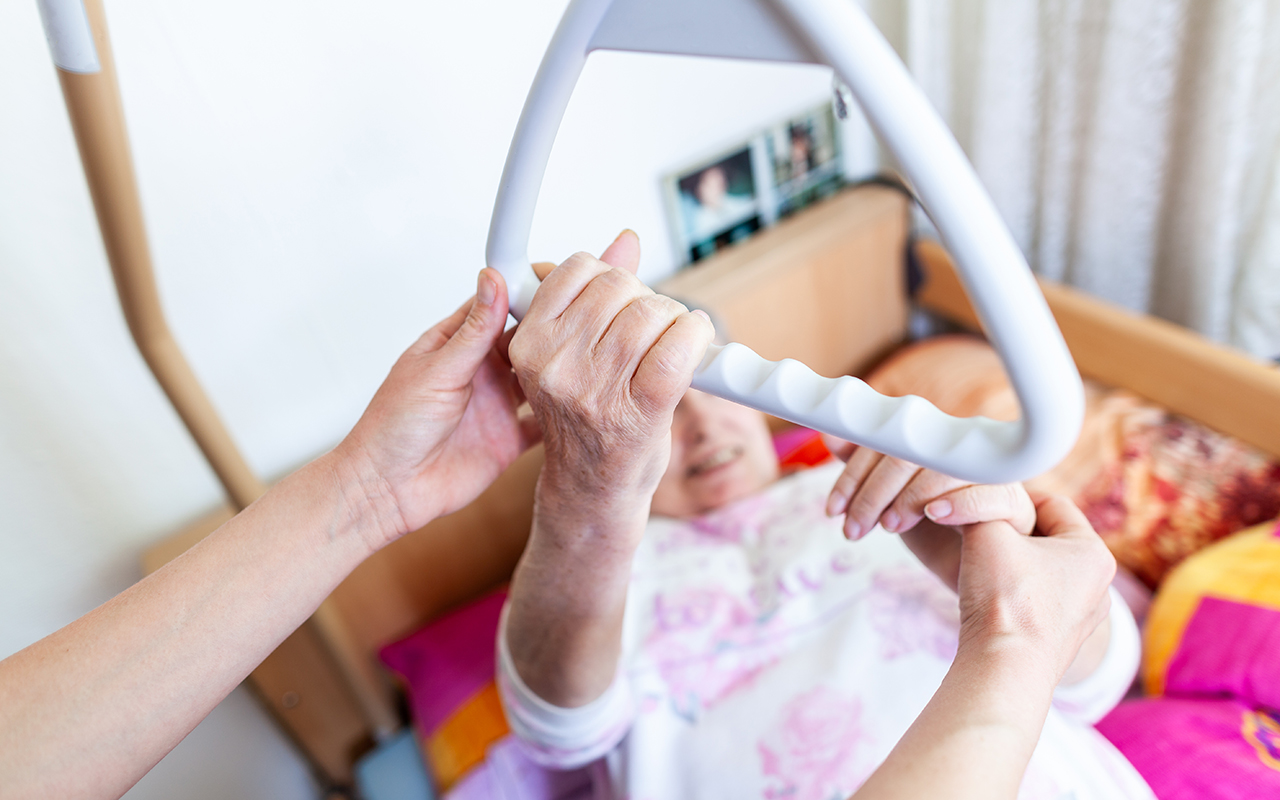Share
Struggles with mobility and balance are common in seniors and often make bathroom visits more challenging. Consider these four tips to maintain your loved one’s dignity while preventing slips and falls.
1. Monitor the Degree of Frailty
Arthritis, osteoporosis, and dementia all play a role in how difficult it is for your loved one to navigate the bathroom.
You may need to walk to the bathroom with him or her to minimize the risk of a fall, or he or she may require assistance getting onto, staying on and getting off of the toilet. Discuss your loved one’s condition with his or her doctor to determine how much support is needed to prevent accidents and injury.
2. Keep Safety in Mind
According to Aging.com, falls are “the most frequent reason for non-fatal trauma” in seniors, and 30% to 50% of falls result from unsafe environmental conditions.
If your loved one is wary about having help in the bathroom, explain the potential safety hazards. Install a toilet seat with grab bars to aid him or her in sitting down and getting up, and provide verbal guidance as needed to help with proper positioning over the seat.
3. Remember Your Loved One is an Adult
When aiding your loved one with bathroom concerns, use the same language you would for other conversations. Changing your tone or wording may make your loved one feel like he or she is being babied, and it increases the potential for embarrassment.
If your loved one needs to be prompted about bathroom visits, avoid using condescending language. Store incontinence products out of sight, and don’t make a big deal out of their use.
4. Don’t Compromise Privacy
As long as your loved one can support himself or herself on the toilet and clean up when he or she is done, you should leave the bathroom and close the door once he or she is settled. Knock before going back in, and only open the door without permission if there’s a sign that something is wrong.
Should your loved one require support and help through the whole process, continue to speak plainly, offering guidance without drawing attention to anything private or personal.
Your loved one may feel uncomfortable asking for help using the toilet, but approaching his or her needs with patience, care and respect preserves his or her dignity and makes bathroom visits less of a challenge for both of you.
If you’re unable to be there for your loved one when he or she needs to use the restroom, Caring Home Care can help! Our certified personal care assistants are trained to meet your loved one’s needs and help them live as independent of a life as possible. Learn more about our personal care assistants today!
How Caregivers Can Reduce Injury While Assisting Seniors Providing daily care for seniors is meaningful work. It can also be physically demanding. Many caregiver injuries happen during lifting, transferring, or repositioning seniors. These injuries are often preventable when proper techniques are used. Learning caregiver injury prevention strategies protects both the caregiver and the senior. It
Build a Caregiver Support Network: Finding the Help and Encouragement You NeedCaring for a loved one is one of the most meaningful and selfless things you can do. But being a family caregiver can also be emotionally, physically, and mentally draining. Whether you’re new to caregiving or have been doing it for years, building a
The Role of Respite Care: Supporting Caregivers and Seniors Caring for an aging loved one is an act of love, patience, and dedication. However, even the most committed caregivers need time to rest, recharge, and take care of their own needs. This is where respite care for caregivers plays a vital role. By offering temporary
Emotional Challenges of Caregiving Understanding and Coping with the Emotional Toll of Being a Caregiver Caregiving is one of the most rewarding roles a person can take on. It allows individuals to provide meaningful support to a loved one in need. However, it also comes with significant emotional challenges. Whether you’re caring for an elderly
Need A Caregiver? Fill Out Form Below
With our competitive rates, we make receiving in-home care affordable regardless of whether you’re using your insurance or paying out of pocket.










